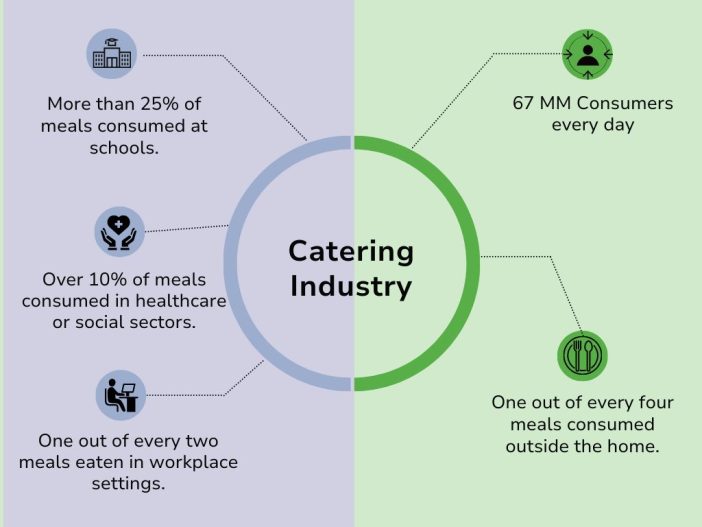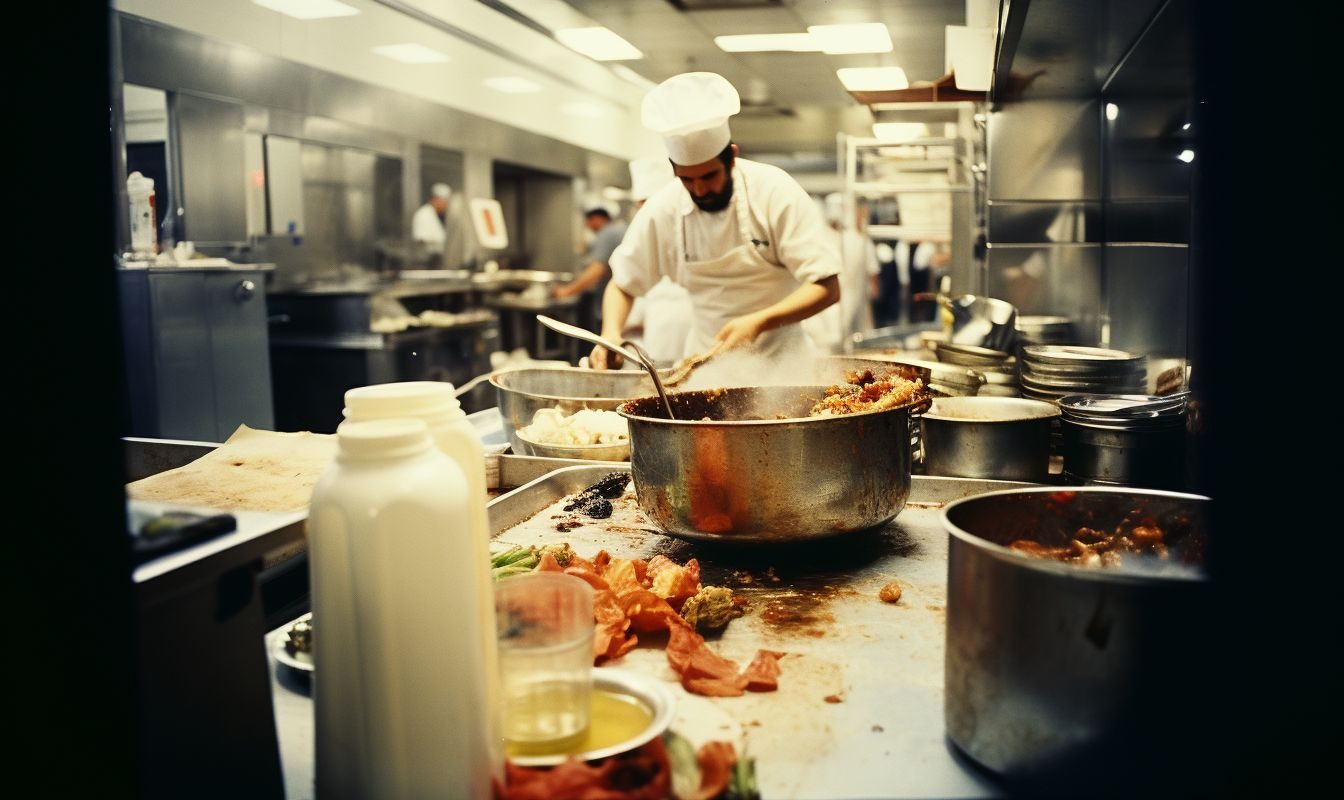According to Food Service Europe (2023), the contract catering industry in Europe delivers around 6 billion meals each year and makes over €25 billion in annual turnover. About 65% of EU social food service organizations haven’t made official contracts with caterers, showing potential for expansion.
This represents a considerable impact, serving:

Contract catering is a service that is outsourced by third-party organizations to specialized companies on a contractual basis. This contract is used by many different institutions like companies, schools, hospitals, and even prisons. Contract catering now serves a wide range of places and occasions, like sports events, museums, train stations, airports, and more.
How does a “Contract catering” operate? Several key attributes can identify it:
- It establishes a contractual partnership between the third-party organization and the contracted catering service provider.
- These services operate within the facilities or premises of the third-party organization.
- Contract catering serves differents targets groups, such as: workers, civil servants, students, patients, and inmates, who have access to a canteen or internal restaurant.
- Meals are often provided to consumers at subsidized “social” prices.
The connection to sustainability is crucial. The issue of food waste extends beyond environmental concerns; it is an ethical dilemma. Valuable, edible food is discarded while many others go hungry.
According to the United Nations and the Food and Agriculture Organization (FAO), approximately 14% of food produced worldwide is lost between harvest and retail, with a significant portion wasted at the retail and consumption levels. The world already produces enough food to feed the global population, yet over 17% of food produced is wasted, as revealed in the Food Waste Index Report 2021.
The catering industry has a unique opportunity to make significant progress in managing food. To fight against food waste, this sector can lead by improving supply chain efficiency and reducing plate waste. The initial step involves assess the amount of food waste in the kitchen, service areas, and canteen.
This quantification is the foundation for identifying opportunities to improve food purchasing, storage, meal planning, preparation, and waste prevention. Business managers are important for implementing sustainable practices.
The food service industry faces a significant loss of about EUR 2.4 trillion globally each year because of food waste. Reducing food waste can greatly benefit this industry. This highlights the importance of business managers in addressing this issue effectively (According to Martin-Rios, Hofmann, and Mackenzie, 2021).
Coming soon: a blog post on how technology is changing food management in school canteens to reduce food waste.



